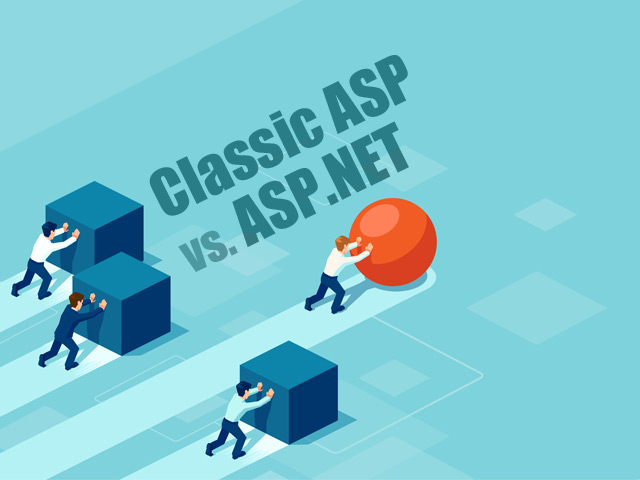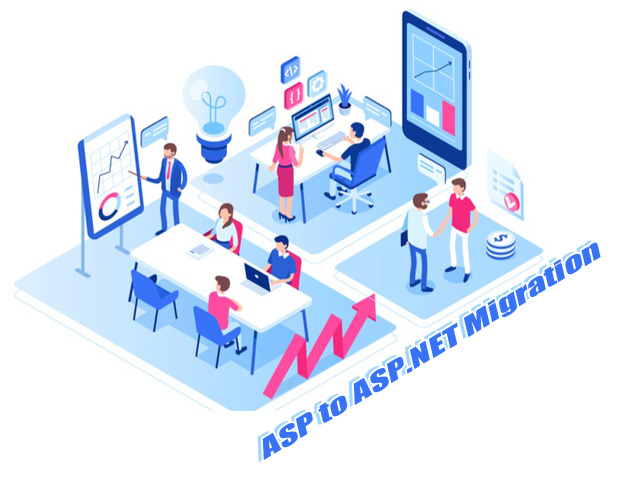Migrating legacy ASP applications to the new .NET framework is a difficult undertaking for companies with a high business dependency on their current applications. ASP.NET applications have a faster response time and performance than legacy ASP applications. ASP.NET process monitoring kills weak processes to maximize server utilization and continuous availability. With built-in server controls and event handling, application creation is faster with stable deployment. The .NET platform has gained a reputation for being performance-oriented, developer-friendly, consumer-centric, and extremely reliable and stable. The process of ASP.NET Core migration enhances the scalability and maintainability of applications, ensuring they can handle modern business demands effectively.


ASP is a server-side scripting engine known for its dynamic generation of web pages. The script mainly written in VBScript, JScript, or PerlScript, is interpreted server-side and then sent to the client-side browser for rendering. ASP.NET on the other hand is a powerful programming framework consisting of many object-oriented languages, class libraries, and Common Language Runtime. The application developed in ASP.NET can have configurable components, integration to multiple data sources, and user interfaces. With ASP.NET enterprise-grade SaaS can be developed as ASP.NET is fully object-oriented, while the former is partial. Moreover, ASP.NET MVC migrations allow developers to create applications with a clean separation of concerns, enhancing code manageability and testing.
Macrosoft ASP migration team has expert developers and analysts who ensure that your business-critical application transitions seamlessly to a new platform. Our team employs a variety of tools and utilities to fast-track the migration process. Fortunately, most legacy ASP functionality can co-exist with ASP.NET. This helps to make a gradual transition from one to the other without a loss of application functionality. While ASP.NET might seem complicated, but it is a developer-friendly platform, which makes development, deployment, testing, and debugging easy for everyone. Our experts also handle ASP to ASP.NET migration with precision, ensuring that every aspect of the application is upgraded to utilize the features of the latest ASP.NET technologies. For databases, ASP.NET DB migration is crucial to maintain data integrity and enhance database performance during the migration process. Additionally, ASP migration strategies are carefully crafted to minimize downtime and ensure a smooth transition.
